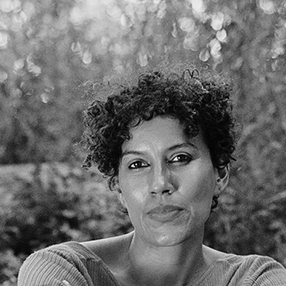[When I come home they rush to me, the flies]
When I come home they rush to me, the flies, & would take me, they would take me in their small arms if I were smaller, so fly this way, that way in joy, they welcome me. They kiss my face one two, they say, Come in, come in. Sit at this table. Sit. They hold one hand inside the other & say, Eat. They share the food, sit close to me, sit. As I chew they touch my hair, they touch their hands to my crumbs, joining me. The rim of my cup on which they perch. The milky lake above which. They ask for a story: How does it begin? Before, I was a child, & so on. My story goes on too long. I only want to look into their faces. The old one sits still, I sit with it, but the others busy themselves now with work & after the hour which maybe to them is a week, a month, I sleep in the room between the open window & the kitchen, dreaming though I were the Sierra, though I were their long lost sister, they understand that when I wake I will have to go. One helps me with my coat, another rides my shoulder to the train. Come with me, come, I say. No, no, it says, & waits with me there the rest whistling, touching my hair, though maybe these are its last seconds on earth in the light in the air is this love, though it is little, my errand, & for so little I left my house again.
Copyright © 2020 by Aracelis Girmay. Originally published in Poem-a-Day on April 2, 2020 by the Academy of American Poets.
“The flies are the flies, they are themselves. We are on earth together— they are my family, but also, in the poem, they are like my family. They help me to think about the small, nearly invisible work of the beloveds, in this case my parents. Though I am a country away they do not begrudge me the distance between us, and as they and I get older, such joy for the small concerns of their grown child’s life Away means differently. This poem means to face that love and bow to it while also making an opening in the sentence through which to touch my own deep sadness, and shame, about it.”
—Aracelis Girmay

